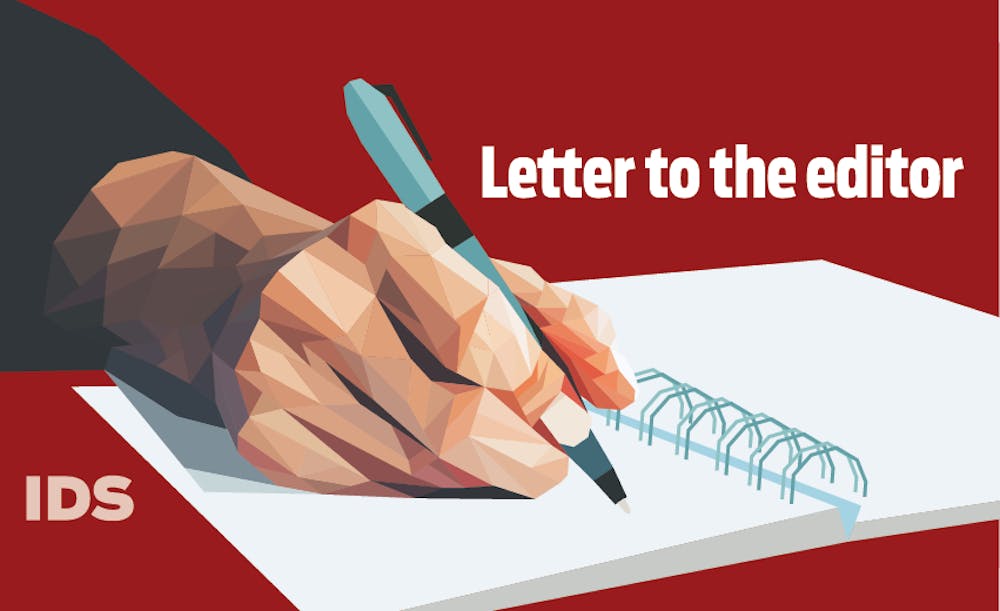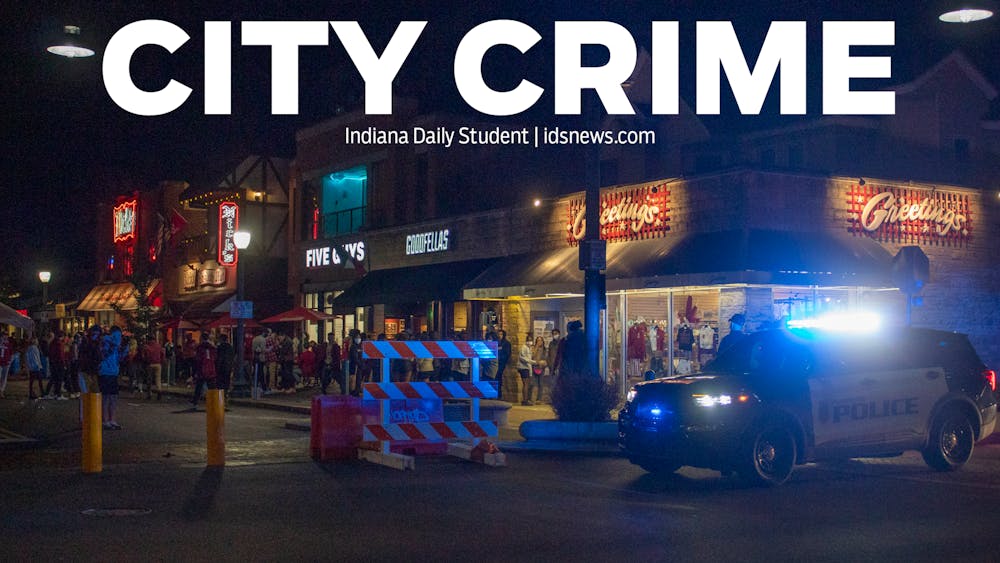Editor's note: All opinions, columns and letters reflect the views of the individual writer and not necessarily those of the IDS or its staffers.
Dear Indiana University Administration,
It is with a heavy heart that I write this letter. My time at Indiana University has been filled with challenges, failures and accomplishments – but above all, profound growth. This university has encouraged me to learn voraciously, pursue my unrelenting curiosities, embrace intellectual discomforts, persist through difficulties and advocate for a more just and equitable world. This is why it’s all the more painful to witness Indiana University betray the values it once inspired in me.
Indiana University has been ranked among the bottom ten schools for this year’s College Free Speech Rankings, a damning reflection of its “poor” speech climate. This failure lies heavily on the administration, whose response to student encampments was marked with punitive measures — sanctioning student groups and disrupting events — following a national trend of backlash against student activism.
This lack of support mirrors broader campus challenges, as highlighted by the Foundation for Individual Rights and Expression report revealing that around half of Indiana University students believe the Israeli-Palestinian conflict, abortion, transgender rights and gun control “are difficult to have open and honest conversations about on campus.” Indiana University has abandoned open dialogue in favor of censorship, echoing the frightening pattern of universities across the country yielding to government sanctions on students’ rights to free speech.
From the cancellation of Samia Halaby’s exhibit at the Eskenazi Museum of Art to the suspension of Professor Abdulkader Sinno, the deployment of rooftop snipers in response to protests and the ongoing repression of PSC events, Indiana University has created an environment in which free speech is stifled by fear.
On Friday, April 4, 2025, a vigil was held in front of the Sample Gates to honor medics, journalists and civilians killed by the Israeli Defense Forces in Gaza. The gathering followed an abrupt and unwarranted cancellation of the Palestine Solidarity Committee’s reservation, arguing it did not qualify as a tabling event due to the “context of the activity.” Despite prior assurances from an administrator to a PSC organizer that the reservation would be approved — even though the event was not a tabling activity — the administration rescinded approval just one hour before the vigil, in what appeared as a deliberate effort to prevent the gathering. University officials, citing the enforcement of the Expressive Activity Policy, announced that students needed to vacate campus to the sidewalks, and following three warnings, would face arrest if they did not comply, as shared by PSC administrators at the event.
According to PSC club representatives, when asked about the specific violation of the Expressive Activity Policy, the enforcers failed to provide a consistent response. They initially referenced the 10-day advance requirement for student club events, then argued the club’s social media post disbarred the vigil from being “expressive activity,” and finally concluded that “expressive activity” for an IU club must be “unplanned or spontaneous.” The administration’s reasoning was both unsubstantiated and inconsistent, as evidenced by the IUPD officer eventually leaving. This incident further underscores the deliberate and ongoing suppression of PSC, exposing IU’s clear intent to stifle free expression on campus.
This weaponization of the Expressive Activity Policy follows an open letter from Jewish faculty members urging that “IU has a responsibility to stand firmly for freedom of speech.” Just weeks later, on April 8, Bloomington Faculty Council passed a resolution to establish the “Big Ten Mutual Defense Compact,” a move that underscores faculty recognition that threats to free expression on campus are both real and escalating.
It is essential to recognize that the administration is not neutral in this matter. Repeatedly, you have made clear your readiness to restrict student speech and suppress voices that challenge opinions and truths you find uncomfortable. Yet still, you have the opportunity to do better, stand by the values of this institution, and reaffirm your commitment to free speech. Harvard’s recent refusal to comply with political pressures should serve as a strong and powerful reminder that universities have both the autonomy and responsibility to uphold academic freedom. Does the status of Indiana University as a public institution of higher education obligate it to submit to governmental demands that “go beyond the lawful authority of this or any administration”? The answer must be unequivocally no — though Harvard’s defense as a private institution is commendable, it is both possible and necessary for public universities like Indiana University to follow suit.
In this unprecedented time, Indiana University must choose to take a stand, as it once taught me, to safeguard its students, ensuring we can speak freely without fear of retribution. Silencing speech not only diminishes the integrity of this institution but also robs students of critical conversations essential to our education and development. I urge the Indiana University administration to recognize its responsibility to uphold free speech for every student who takes great pride in calling this university home.
Editor’s note: IU did not respond to a request for comment on the allegations listed in the column.
CORRECTION: This article has been updated to correctly reflect FIRE's name.
Savannah Ahmad (she/her) is a senior studying Human Biology with a minor in Political Science.






